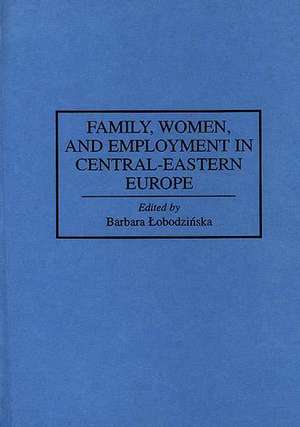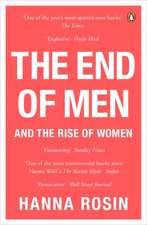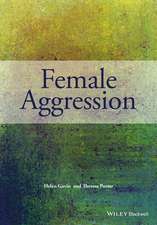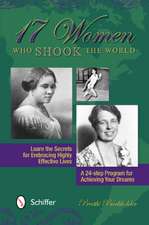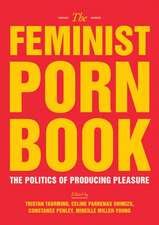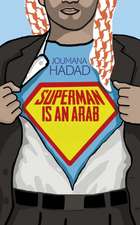Family, Women, and Employment in Central-Eastern Europe: Controversies in Science
Autor Barbara Lobodzinskaen Limba Engleză Hardback – 13 noi 1995 – vârsta până la 17 ani
Din seria Controversies in Science
- 42%
 Preț: 397.74 lei
Preț: 397.74 lei - 38%
 Preț: 437.24 lei
Preț: 437.24 lei - 28%
 Preț: 438.00 lei
Preț: 438.00 lei - 28%
 Preț: 436.64 lei
Preț: 436.64 lei - 35%
 Preț: 361.95 lei
Preț: 361.95 lei - 38%
 Preț: 347.34 lei
Preț: 347.34 lei - 43%
 Preț: 372.58 lei
Preț: 372.58 lei - 28%
 Preț: 436.15 lei
Preț: 436.15 lei - 28%
 Preț: 436.64 lei
Preț: 436.64 lei - 28%
 Preț: 461.60 lei
Preț: 461.60 lei - 38%
 Preț: 437.91 lei
Preț: 437.91 lei - 38%
 Preț: 437.15 lei
Preț: 437.15 lei - 28%
 Preț: 437.24 lei
Preț: 437.24 lei - 27%
 Preț: 440.87 lei
Preț: 440.87 lei - 28%
 Preț: 437.15 lei
Preț: 437.15 lei - 42%
 Preț: 398.58 lei
Preț: 398.58 lei - 38%
 Preț: 439.60 lei
Preț: 439.60 lei - 27%
 Preț: 438.67 lei
Preț: 438.67 lei - 24%
 Preț: 463.13 lei
Preț: 463.13 lei - 37%
 Preț: 352.93 lei
Preț: 352.93 lei - 27%
 Preț: 345.74 lei
Preț: 345.74 lei - 27%
 Preț: 438.76 lei
Preț: 438.76 lei - 28%
 Preț: 437.91 lei
Preț: 437.91 lei - 28%
 Preț: 436.57 lei
Preț: 436.57 lei - 28%
 Preț: 438.17 lei
Preț: 438.17 lei - 38%
 Preț: 438.76 lei
Preț: 438.76 lei - 27%
 Preț: 438.93 lei
Preț: 438.93 lei - 28%
 Preț: 344.90 lei
Preț: 344.90 lei - 27%
 Preț: 364.40 lei
Preț: 364.40 lei - 28%
 Preț: 436.73 lei
Preț: 436.73 lei - 38%
 Preț: 348.61 lei
Preț: 348.61 lei - 27%
 Preț: 439.60 lei
Preț: 439.60 lei - 27%
 Preț: 579.43 lei
Preț: 579.43 lei - 38%
 Preț: 438.00 lei
Preț: 438.00 lei - 41%
 Preț: 375.55 lei
Preț: 375.55 lei - 43%
 Preț: 370.97 lei
Preț: 370.97 lei - 30%
 Preț: 599.90 lei
Preț: 599.90 lei - 28%
 Preț: 436.92 lei
Preț: 436.92 lei - 42%
 Preț: 398.37 lei
Preț: 398.37 lei - 38%
 Preț: 436.80 lei
Preț: 436.80 lei - 30%
 Preț: 507.00 lei
Preț: 507.00 lei - 38%
 Preț: 436.04 lei
Preț: 436.04 lei - 28%
 Preț: 343.38 lei
Preț: 343.38 lei - 24%
 Preț: 461.87 lei
Preț: 461.87 lei - 27%
 Preț: 438.51 lei
Preț: 438.51 lei - 28%
 Preț: 435.37 lei
Preț: 435.37 lei - 28%
 Preț: 344.47 lei
Preț: 344.47 lei - 28%
 Preț: 436.99 lei
Preț: 436.99 lei - 38%
 Preț: 344.75 lei
Preț: 344.75 lei
Preț: 440.53 lei
Preț vechi: 605.77 lei
-27% Nou
Puncte Express: 661
Preț estimativ în valută:
84.30€ • 88.23$ • 70.16£
84.30€ • 88.23$ • 70.16£
Carte tipărită la comandă
Livrare economică 31 martie-14 aprilie
Preluare comenzi: 021 569.72.76
Specificații
ISBN-13: 9780313294020
ISBN-10: 031329402X
Pagini: 344
Dimensiuni: 156 x 235 x 22 mm
Greutate: 0.67 kg
Ediția:New.
Editura: Bloomsbury Publishing
Colecția Praeger
Seria Controversies in Science
Locul publicării:New York, United States
ISBN-10: 031329402X
Pagini: 344
Dimensiuni: 156 x 235 x 22 mm
Greutate: 0.67 kg
Ediția:New.
Editura: Bloomsbury Publishing
Colecția Praeger
Seria Controversies in Science
Locul publicării:New York, United States
Notă biografică
Barbara Lobodzinska, a sociologist, was born and educated in Poland and received a PhD from Warsaw University. Her areas of interest include sociology of marriage and family and women's issues. She has researched and lectured at the Polish Academy of Sciences, Warsaw University, the Medical Academy in Poland, and the University of Minnesota in the United States. Lobodzinska's research on marriage, family, and working women has resulted in several books and over 80 articles published in Poland and the United States.
Cuprins
IntroductionOverviewThe Family and Working Women during and after Socialist Industrialization and Ideology by Barbara /Lobodzi'nskaBulgariaWomen in Bulgaria by Bistra AnachkovaCzech Republic and SlovakiaWomen and Family--the Czech Version of Development and Chances for Improvement by Marie 'CermakovaWomen's Equality, Work, and Family in the Czech Republic by Alena HeitlingerGermany (The Former German Democratic Republic)East German Women--Chief Losers in German Unification by Hanna BehrendThe Family in the German Democratic Republic from a Western Point of View by Barbara KetelhutHungaryThe Position of Hungarian Women in the Process of Regime Change by Katalin KonczLithuaniaWomen and Family in Lithuania by Irena Juozeliuniene and Vida KanopienePolandThe Impact of Socioeconomic Restructuring on Polish Women by Anna M. Zajicek and Toni M. CalasantiWomen and Families in Poland: Pressing Problems and Possible Solutions by Jill M. BystydzienskiRomaniaParticipation of Women in the Workforce: The Case of Romania by Doina Pasca HarsanyiFormer YugoslaviaRe-domestication of Women and Democratization in Postsocialist Slovenia by Maca JoganWomen and Work in the Former Yugoslavia and Their Present Situation by Andjelka MilicWomen, Work, and Family in Former Yugoslavia by Joy B. ReevesConclusionEqual Opportunities: Obstacles and Remedies by Barbara /Lobodzi'nskaAppendixReferencesIndex
Recenzii
This collection of essays is one of the first to attempt a systematic and statistically grounded examination of the situation of women and the family in the postsocialist states of Bulgaria, the Czech Republic, Slovakia, the former German Democratic Republic, Hungary, Poland, Romania, and former Yugoslavia.
[A] fine and intelligent, skillfully structured volume. . . . [T]his book makes for useful reading for all those who are interested in the current situation of Central-Eastern European countries.
Despite the different points of view resulted from the contributors' different life expereinces, and dissimilar professional training, it is to the merit of Barbara Lobodzinsk to supply the readers with a fine and intelligent, skillfully structured volume. Her initial overview, together with her introductory notes to each national case-study, and her concluding remarks, are most helpful in understanding the factors influencing the curent changes inside and outside the family. To sum up. her book makes for useful reading for all those who are interested in the current situation of Central-Eastern European countries.
[A] fine and intelligent, skillfully structured volume. . . . [T]his book makes for useful reading for all those who are interested in the current situation of Central-Eastern European countries.
Despite the different points of view resulted from the contributors' different life expereinces, and dissimilar professional training, it is to the merit of Barbara Lobodzinsk to supply the readers with a fine and intelligent, skillfully structured volume. Her initial overview, together with her introductory notes to each national case-study, and her concluding remarks, are most helpful in understanding the factors influencing the curent changes inside and outside the family. To sum up. her book makes for useful reading for all those who are interested in the current situation of Central-Eastern European countries.
